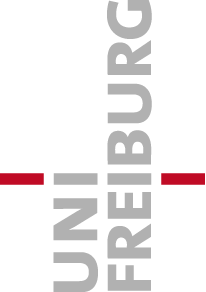Abram, Marieke/Fournier, Gilbert/Nemes, Balázs J., „Making Mysticism. Theologia mystica als historische Kategorie der Wissensordnung in der Katalogisierungspraxis der Erfurter Kartause“, in: Andreas Speer/Lars Reuke (Hg.), Die Bibliothek. Denkräume und Wissensordnungen. Dokumentation der 41. Kölner Mediävistentagung (Miscellanea Mediaevalia), Berlin: de Gruyter 2020, S. 621-655.
Abstract:
The Middle Ages did not know the usage of the concept of ‘mysticism’ as a category of historiographical classification. All the more interesting, therefore, is the library of the Erfurt Charterhouse: its late medieval shelf location catalogue reveals that it contained two sets of shelfmarks dedicated to mystical theology (theologia mystica) and to literature about visions and revelations (revelationes). In contradistinction to the shelf location catalogue, which distinguishes between theologia mystica and revelationes, in current scholarship the authors and works of both groups are instead subsumed under the one broad concept of ‘mysticism’. This constellation directs our attention to the formation in the later Middle Ages of the category ‘mystical’, and provokes the question as to what can be said about ‘mysticism’ from the perspective of a historically attested library collection and the discursive structures that determined its shape. Our essay offers approaches to this question from the perspectives of German literary scholarship, the history of libraries, and the history of philosophy, and outlines the intellectual goals of the DFG-project ‘Making Mysticism. Mystische Bücher in der Bibliothek der Erfurter Kartause’.
Das Mittelalter kennt noch keine Verwendung des Begriffs ‚Mystik‘ als historiographische Ordnungskategorie. Umso interessanter ist die Bibliothek der Erfurter Kartause, die nach dem Zeugnis ihres spätmittelalterlichen Standortkatalogs zwei Signaturgruppen besaß, die der mystischen Theologie (theologia mystica) und der Visions- und Offenbarungsliteratur (revelationes) gewidmet waren. Anders als der Standortkatalog, der zwischen theologia mystica und revelationes unterscheidet, werden die Autoren und Werke beider Gruppen in der aktuellen Forschung eher unter dem einen, weiten Begriff der ‚Mystik‘ subsumiert. Diese Konstellation lenkt den Blick auf die spätmittelalterliche Kategorienbildung ‚mystisch‘ und provoziert die Frage, was sich aus der Sicht eines historisch bezeugten Bibliotheksbestands und der ihn bestimmenden diskursiven Ordnungen über ‚Mystik‘ sagen lässt. Der Beitrag bietet Annäherungen an diese Fragestellung aus germanistischer, philosophie- und bibliotheksgeschichtlicher Perspektive und skizziert die Erkenntnisziele des Freiburger DFG-Projektes „Making Mysticism. Mystische Bücher in der Bibliothek der Erfurter Kartause“.
Weiterführende Hinweise zur Kölner Tagung hier.
Weiterführende Hinweise zum Sammelband der Tagung hier.

